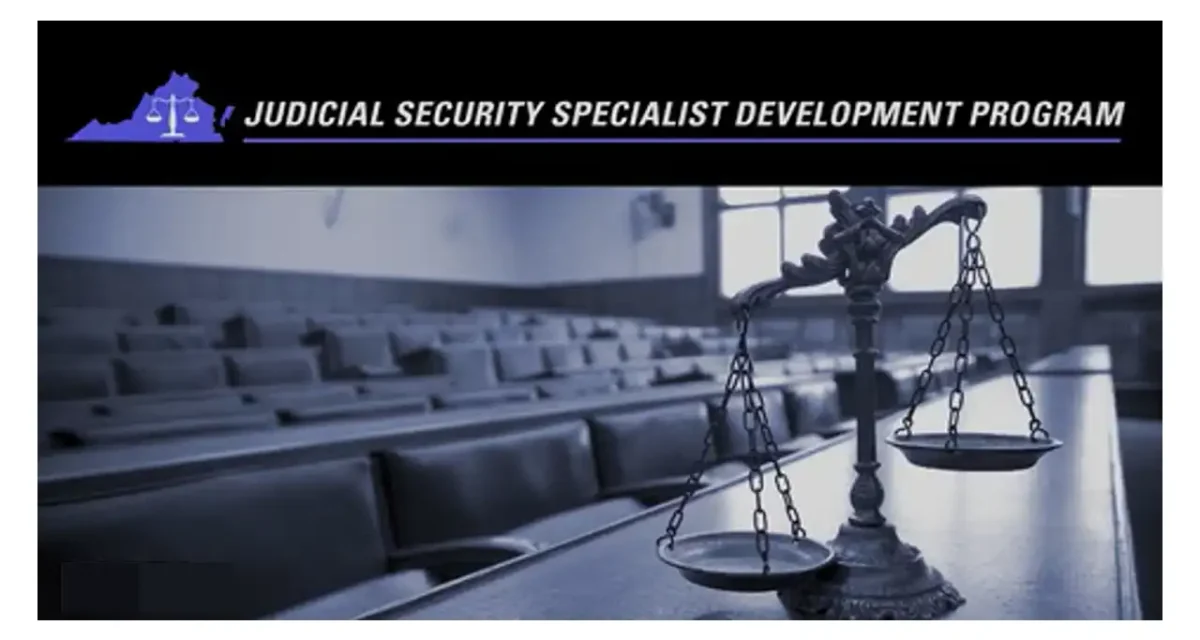
Nationally, threats against judicial personnel have quadrupled in the last decade. The judges themselves are not the only ones in danger. Judges’ families are also being targeted as a direct threatening tactic, and more attacks are occurring in the judges’ homes. Creating awareness and providing resources is critical to securing the judiciary and their families.
In response, NCPI’s Judicial Security Specialist Development program prepares participants to enhance the safety of judicial officials, their families, and other judicial staff. Throughout the interactive program, participants explore the foundations, current practices, challenges, and opportunities, as well as how to adopt a security-conscientious approach at work, travel, and home.
This training is offered as a concise, relevant, and applicable eLearning course addressing the critical issues related to judicial security. Designed with the practitioner in mind, the course includes on-screen text, downloadable resources, exercises, videos, and narration in a user-friendly eLearn environment that allows participants to start, stop, and resume the training based on their schedules. It may also be offered as a classroom-based (in-person or virtual) training.
Learning Objectives:
- Participants will gain familiarity with key concepts related to judicial security assessment and implementation.
- Participants will gain familiarity with the Principles of Crime Prevention and Crime Prevention Through Environmental Design (CPTED).
- Participants will gain familiarity with the Medical Model as a tool for making evidence-based findings and recommendations related to judicial security.
- Participants will gain a working familiarity with the CLIPS methodology.
- Participants will become familiar with the current trends of courthouse/courtroom violence.
- Participants will become familiar with the application of crime prevention in a judicial setting.
- Participants will become familiar with the application of violence interdiction in a judicial setting.
- Participants will become familiar with judicial security best practices related to securing the judicial workplace (courthouse / courtrooms).
- Participants will become familiar with the principles and practices of personal safety awareness as they apply to judicial security.
- Participants will become familiar with paradigms of effective situational awareness.
- Participants will recognize physiological cues and responses related to threat recognition and conflict mitigation.
- Participants will become familiar with best practices related to executive protection details for judicial personnel.
- Participants will become familiar with the Judicial Security Toolkit (JST)
- Participants will become familiar with paradigms of effective home security.
- Participants will become familiar with the application CPTED and crime prevention principles in a residential setting.
- Participants will become familiar with best practices related to protection details assigned to judicial security in a residential setting.
Self-Paced Online Course
2 learning hours
Classroom – In-person or Virtual Course
8-16 learning hours
Cooperative Partners:
This tuition-free training was originally supported by a partnership between The Petersburg, Virginia Sheriff’s Office, the Virginia Attorney General’s Office, the Virginia Sheriff’s Association, the United States Marshals Service and NCPI.
